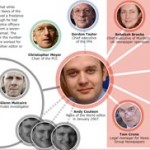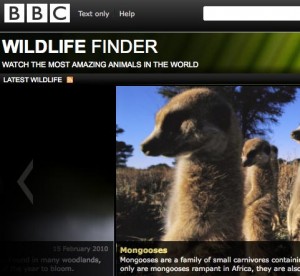“Once again weakness by the regulator has led to people calling for tougher sanctions against journalism,” Guardian editor Alan Rusbridger argued at today’s press self-regulation debate in the House of Lords.
The failings of the Press Complaints Commission explained the Culture, Media and Sport select committee’s call for a renamed self-regulatory body with the power to make financial sanctions, he said.
The panel gathered at Westminster for the Media Standards Trust event (at which no member of the Press Complaints Commission was present, despite being invited) were united on one point: that increasing the PCC’s powers of penalisation was not necessarily the right way forward.
Geoffrey Robertson QC was adamant on this point: redress of grievances should be done through the courts with juries, not via the PCC; Bob Satchwell, chairman of the Society of Editors, was firmly against any governmental direction of press regulation: it should come from the public and the industry, he said.
Robertson, who has previously called for all newspaper editors to step down from the body, said the PCC was a “confidence trick that now fails to inspire confidence”.
Private Eye’s Ian Hislop was the “most trusted editor in Britain “by not having anything to do with the PCC” Robertson said, adding that most its inquiries were “utter jokes”.
Bob Satchwell, loyal defender of the mainstream press and the PCC, said that suspension of publication (one of the recommendations made by the CMS committee last week) had “absolutely no place in democracy”. “In the end the real arbiters should be the readers,” he said.
The PCC had changed a “cavalier” and “arrogant” press of yore, Satchwell said. The level of control should be up to the public and the readers, he added – not organisations like the Media Standards Trust, or the government.
Rusbridger, who laid out the phone hacking saga as a case study of PCC failure (over which he resigned from the editors’ code committee) said the body needed to either admit it couldn’t conduct proper inquiries, or undergo serious reform.
“It may be that it’s flying the wrong flag [and might be ] better to rebrand itself as a media complaints and conciliation service and forget about regulation.”
Over phone hacking and the new evidence presented by the Guardian in July 2009, the PCC had “showed a complete lack of appetite to get to the bottom of what had happened,” he said.
It inquiries into phone hacking, had been inadequate, Rusbridger said. The PCC had explained privately “that they didn’t have the resources to do proper investigations and it wasn’t within their remit. [It said] they were not set up or financed to do proper investigations”.
“To which the answer is is fine, but then don’t pretend to do investigations which are then used to exonerate people or organisations. By doing so you bring self-regulation into disrepute.”
Rusbridger argued several points in particular:
- He claimed that either former NOTW editor Andy Coulson or News International executives were lying, in light of the Guardian’s allegations that four “criminal” private investigators had been hired by the News of the World in the past. It was either the case that Andy Coulson, currently director of communications for the Conservative party, was lying and knew about the activities of these private investigators, “criminally obtaining information which led directly to News of the World stories”; or, Rusbridger said, individuals within News International “knew about them and paid them [private investigators] … but protected the editor from knowing what was going on, in which case News International executives have been lying”. Those seemed to him, he claimed, the only two explanations for recent revelations.
- For press self regulation to work, the press must tell the truth to the regulators, Rusbridger said. Furthermore, newspapers should thoroughly “cover its own industry,” he said, citing that the Guardian had been the only newspaper to report on the £800,000 tribunal payout to a former reporter, over bullying allegations. The PCC needed to acquire some teeth, or “be frank” about its limitations and “rebrand as a mediator”.



